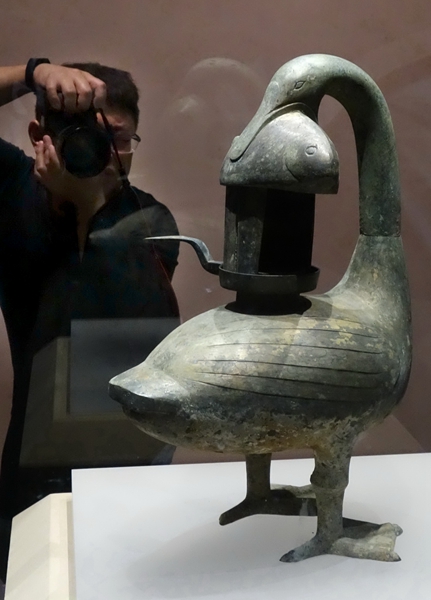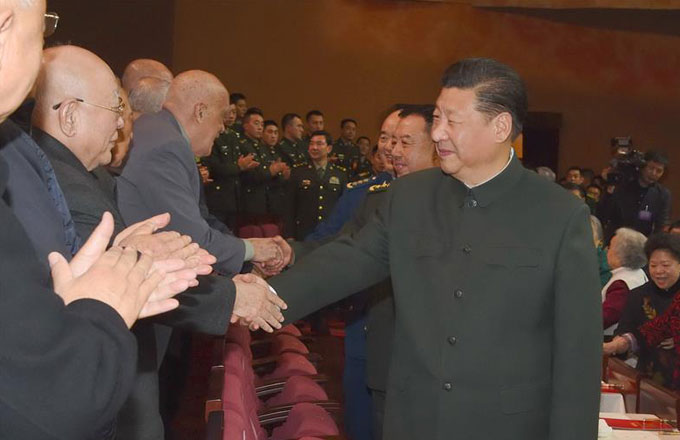Tomb site of Han marquis chosen for national park
 |
|
A visitor photographs a goose-shaped lamp unearthed from the tomb of the Marquis of Haihun in Nanchang, Jiangxi province. [Photo by ZHUO ENSEN/CHINA DAILY] |
Plans are being made to build a national park on the site of China's most complete Western Han Dynasty (206 BC-AD 24) cemetery, and the park will include a museum to house the artifacts that have been unearthed from the tomb.
The tomb of the Marquis of Haihun near the Jiangxi provincial capital of Nanchang is one of the few imperial tombs that have not been looted. It covers roughly 40,000 square meters and contains eight small tombs and a burial site for chariot horses.
Peng Yingun, director of the Nanchang Administration for Relics of the Haihun Principality of the Han Dynasty, said the park will cover at least 10 square kilometers and include a world-class museum with 60,000 sq m of floor space to house the unearthed artifacts.
He denied an earlier media report that China Architecture Design & Research Group's design of the 20-sq-km park has been completed and will cost 1.2 billion yuan ($172 million).
The design and research group made public a preliminary concept soon after it was awarded the design contract, but that is not final, Peng said. The design agency has to submit its draft plans within half a year to be assessed and approved by the State Administration of Cultural Heritage.
The cost of the project is not yet known, he said.
They are still looking for a qualified designer for the museum, he said.
"The design must take into consideration the protection of these artifacts, but we don't have requirements as to its appearance," he said.
Outside the park will be an experience zone-showing how Han bronzware was made and Han food was cooked-and a cultural center featuring the culture of the Western Han and Eastern Han (AD 25-220) dynasties, he said
The cultural center is not for commercial interest but to preserve our cultural heritage, Peng said.
The excavation of the tomb began in 2011. Among the greatest archaeological finds made there were 285 golden ingots, 48 golden horse hoofs, 25 golden qilin (a mythical animal) hoofs and 20 golden plates.
Archaeologists also found a bronze pot containing chestnuts, possibly a sign that China's hot pot cuisine was also popular among ancient aristocrats.
The remains of the Marquis Liu He were removed for research in January 2016. Liu was the grandson of Emperor Wu, whose reign began one of the most prosperous periods in China's history.
During the excavation, care was taken to preserve the site, and an application has been made to inscribe it on the UNESCO World Heritage list.























